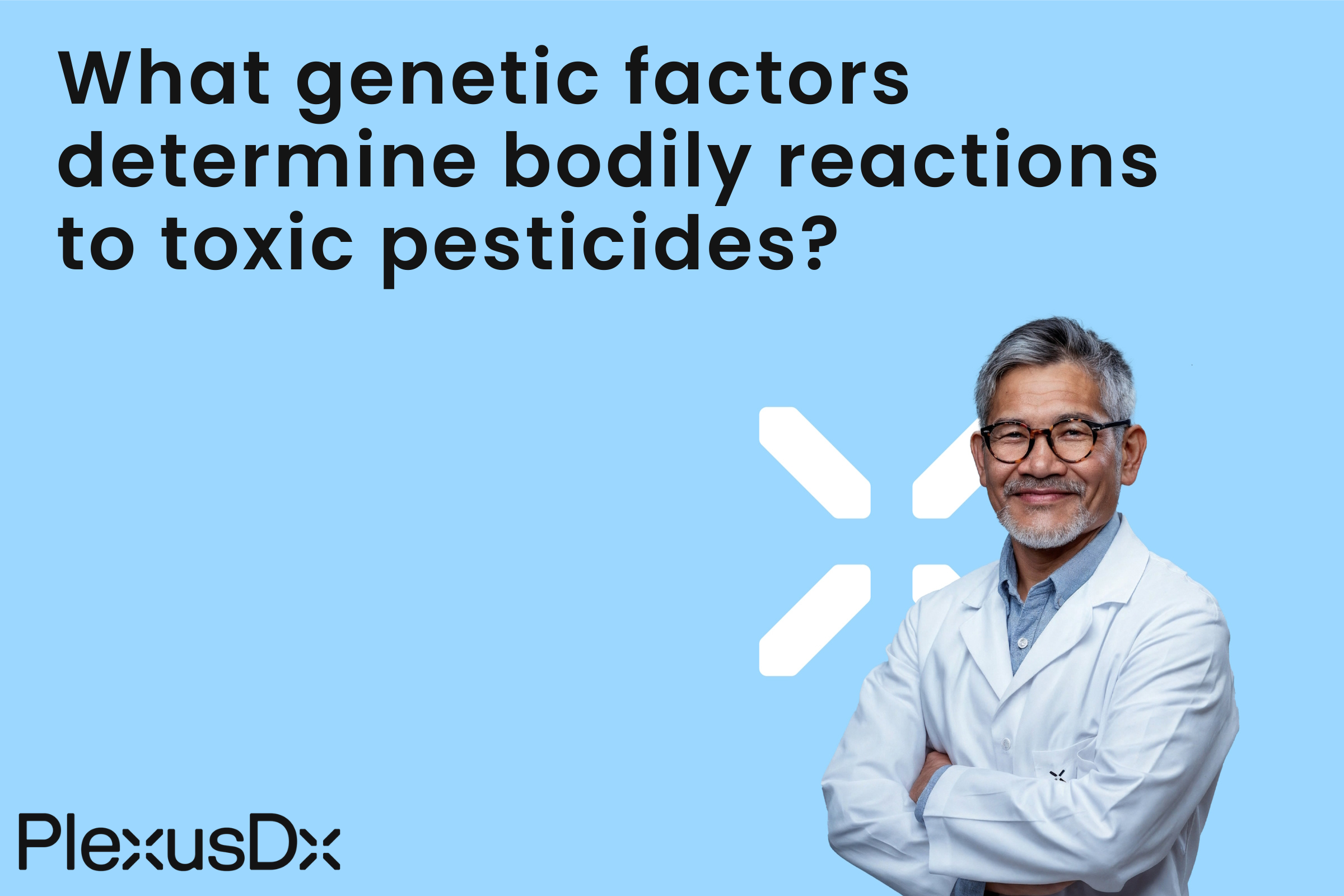During our everyday routines we come into contact with many substances and chemicals which can affect our health without our awareness.
Pesticides represent a chemical group that has become a focal point of scientific and public interest in recent years. Agricultural and public areas contain these compounds which kill weeds, insects, fungi and microbes and they present potential health hazards to humans. This blog post investigates pesticide sensitivity while examining genetic factors that determine bodily reactions to toxic pesticides. Pesticides exist in multiple forms but the most prevalent groups are organophosphates, neonicotinoids, and pyrethroids. Agricultural chemicals help farmers maximize crop yields while controlling pests but their remnants stay on produce and in nature which causes exposure risks for people. Organophosphate pesticides remain prevalent throughout the United States despite attempts to break them down when they interact with air and light. Acute pesticide poisoning which manifests in skin and eye irritation alongside fatigue, nausea and breathing difficulties leads to severe health outcomes while causing numerous annual fatalities worldwide. Chronic low-level exposure to pesticides represents the primary health threat for individuals who do not directly handle these chemicals. Long-term exposure to pesticides leads to multiple health conditions like fertility problems and cognitive impairments as well as neurodegenerative diseases and thyroid disorders along with obesity and DNA damage which can cause cancer. The genetic makeup of an individual determines how sensitive they will be to pesticides. Variants of specific genes involved in oxidative stress management and DNA repair as well as other aspects such as brain health and immune response and vitamin D activity determine how pesticides are processed by our bodies. Research shows that genetic elements such as PON1, ABCB1, CYP1A1, SOD2, NOS1, ERCC6L2, XRCC1, XPC, BCHE, HLA-DQA2, GC and VDR operate as essential components in pesticide breakdown processes, oxidative stress response systems, DNA repair operations, brain activities, immune system functions and vitamin D processing pathways. Genetic predispositions can increase sensitivity to negative pesticide effects yet lifestyle and environmental elements play a vital role in determining an individual's overall sensitivity. Understanding your genetic vulnerabilities enables you to take steps to reduce pesticide exposure and protect your health. Precision Health & Wellness tests from PlexusDx help you understand your unique genetic profile and its impact on your reaction to environmental toxins including pesticides when addressing pesticide sensitivity and genetic predispositions. Individuals who explore genetic tests provided by PlexusDx and available through PlexusDx.com, Amazon, and Walmart will acquire better insights into their genetic traits which will enable them to make health-protective decisions. Pesticides serve as essential elements of modern farming operations yet their extensive deployment presents substantial health risks especially for people genetically predisposed to pesticide toxicity. PlexusDx genetic testing services equip people with essential knowledge about their genetic risks and enable them to take preventive actions against harmful pesticide exposure. Your health stands as your greatest asset and recognizing genetic weaknesses allows you to choose wisely to safeguard your wellbeing.

Share:
What genetic factors contribute to heel pain and plantar fasciitis?
Effect of Pyroglutamic Acid on wellbeing and health outcomes?